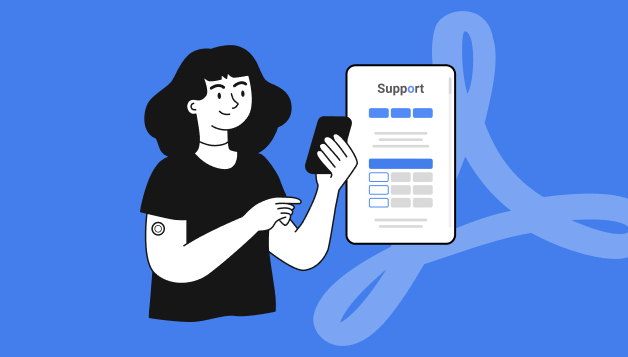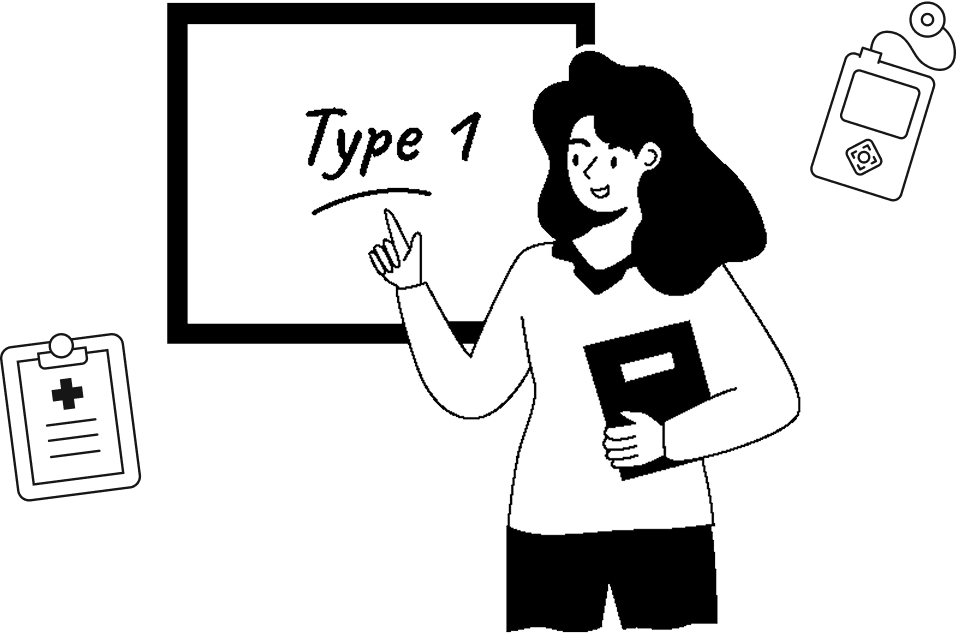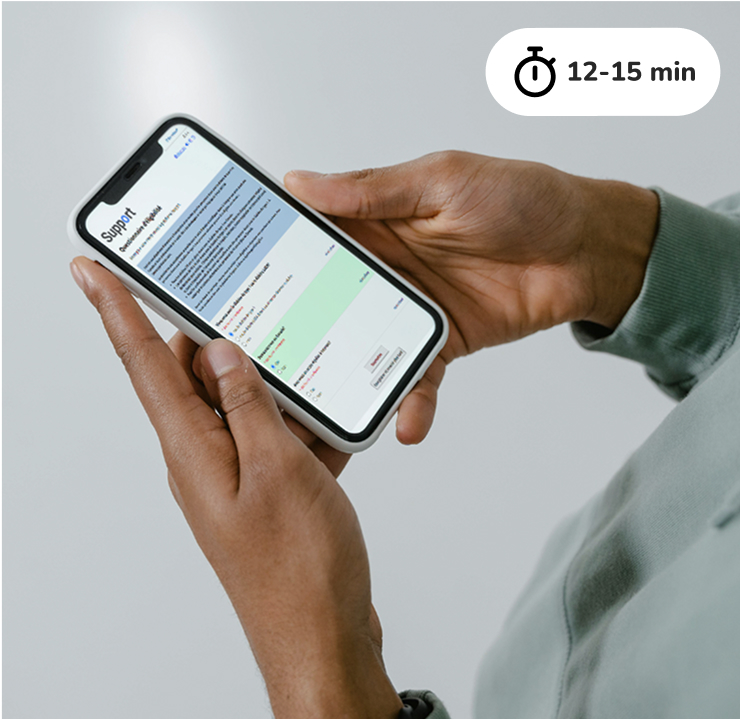Being diagnosed with type 1 diabetes (T1D) can deeply affect your and your loved ones’ everyday life. Managing T1D requires constant attention: blood sugar monitoring, carb counting, insulin administration, hypoglycemia management, etc. This new reality, which can also come with its share of financial and organizational challenges, can leave some patients feeling powerless, trapped, discouraged, panicked or anxious.
T1D can take up so much space in your life that it overshadows other aspects, which in turn affects your mental health, your love life, and your family, social and professional relationships.
But, keep in mind that you’re not alone with your T1D or that of a family member. There are resources to support you! For instance, social workers can offer you tailored, individualized psychosocial support to help you navigate through the challenges you or your loved ones may face with T1D.
We asked guest blogger Audrey-Ann Aubert, a diabetes social worker and BETTER Registry participant (she herself lives with T1D), to give us a more in-depth look at her profession in the context of T1D.
Custom-made support
Social work is an academic discipline in the health field (undergraduate, graduate and postgraduate studies). In Quebec and Ontario, technical training can be completed. However it doesn’t grant access to the reserved title of social worker.
Social workers work in hospitals, schools, youth centres, community organizations, private clinics and independent practice. Their role is to help people experiencing difficulties better understand the personal and social challenges they face, and find solutions adapted to their reality.
A social worker is your ally on your journey with T1D. Their support goes beyond lending a sympathetic ear; they can help assess your overall situation, taking into account your resources, your environment and your aspirations. The social worker works with you to develop concrete strategies to promote your well-being and quality of life. They often collaborate with other professionals such as doctors, psychologists or dieticians, and can refer you to resources tailored to your needs.
In addition to contributing to medical care, the social worker can:
- promote your emotional and social balance;
- develop custom-made coping strategies;
- support your independence and boost your self-confidence.
Targeted interventions
After a T1D diagnosis, you may be invited to meet with a social worker for yourself, your child or a loved one. The diagnosis often comes as a real shock, and can spark fear, bring uncertainty and raise many questions. The social worker can support you during this crucial stage by offering explanations, giving you space to express your emotions and helping you find ways to adapt to your new reality and mourn your life without diabetes. They can also intervene at other times.
Independence and letting go
A social consultation is a good option if you need help to develop your independence or that of your child living with T1D, or to let go as a parent.
Life transitions
Each stage of life—back-to-school, adolescence, pregnancy, retirement—can aggravate the challenges associated with T1D. These moments of transition require an additional adaptation effort. The social worker works with you to draw up a personalized intervention plan that will help you face these transitions with confidence and serenity.
Emotions and stress
Feelings of anger, injustice, anxiety and frustration are frequently experienced by people with T1D and their loved ones. The social worker offers emotional management tools, an empathetic ear and concrete solutions to transform these challenges into positive strengths.
Raising awareness
The social worker can also play a key role in raising awareness of the realities of T1D in schools, workplaces, etc., to support a more inclusive and adapted environment.
Access to resources
Navigating the multiple aspects of T1D can be challenging. The social worker can refer you and your family to external resources and relevant organizations to expand opportunities to get support and improve your everyday life.
How do I find a social worker?
First, you should talk to your healthcare team, which may already include a social worker or can refer you to one who is specialized in diabetes.
Other options include:
- Breakthrough T1D’s Mental Health + Diabetes Directory, which lists professionals who have undergone additional training to understand the realities of people living with diabetes and provide mental health support adapted to this reality
- Ordre des travailleurs sociaux et des thérapeutes conjugaux et familiaux du Québec website or the Canadian Professional Social Workers (CASW) website
- Resources in the private sector
- Info-Social 811, option 2, for a free telephone consultation 24/7 in the province of Quebec or Government of Canada list for Mental Health Support
- Your nearest CLSC or Community Health Centers
An invitation to live better with diabetes
T1D is a demanding condition, but it doesn’t define you. With the help of a social worker, it’s possible to cope with the challenges of T1D and find balance in all areas of your life.
Whether you need help to overcome the initial stages of diagnosis, navigate life transitions or simply recover your serenity, the social worker is there to listen to you and guide and support you.
Don’t hesitate to ask for help: together, we can turn the challenges of T1D into opportunities for growth and well-being.
Written by: Audrey-Ann Aubert, diabetes social worker
Reviewed by:
- Nathalie Kinnard, scientific writer and research assistant
- Anne-Sophie Brazeau, P.Dt., Ph.D.
- Claude Laforest, Marie-Christine Payette, Jacques Pelletier and Domitille Dervaux, patient partners of the BETTER project






